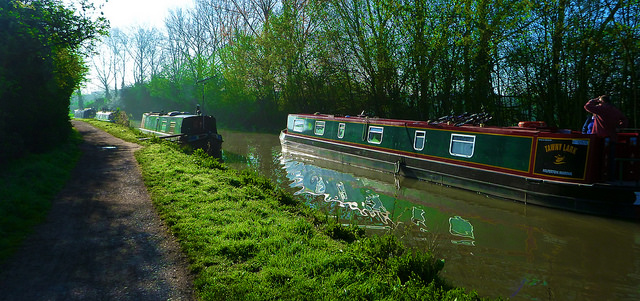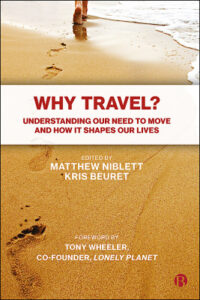Going slow – half a million tune in to watch two-hour canal trip on BBC Four
8th May 2015

Slow TV: a leisurely two-hour trip along the Kennet and Avon canal was watched by over half-a-million viewers. Image credit: Angel Ganev, licensed under Creative Commons via flickr.
A two-hour programme featuring a boat trip along a quiet canal has proved a surprise hit. Over half a million people watched All Aboard! The Canal Trip when broadcast, and many more have since tuned in on iPlayer to watch the narrow boat chug along the Kennet and Avon canal in southern England, captured by a single camera without voice-overs, music or editing. This was the most popular of the BBC’s recent ‘Goes Slow’ season of ‘slow TV’ which the BBC describes as ‘a selection of deliberately unrushed programmes’ that offer ‘an antidote to the frenetic pace and white noise of modern life.’
The BBC’s series is not the first in the world, and has been much inspired by similar – and even more popular – ‘slow TV’ in Norway, where a five-day programme of a fjord cruise was watched by over half the population. Whilst the BBC programmes haven’t been a hit with all viewers, the ratings (around 40% higher than usual for that slot) and the positive reception in social media and TV reviews indicate the ‘Goes Slow’ series has tapped in to something bigger: the increasingly popular ‘slow movement’. With its most well-known origins within ‘slow food’ thinking in 1980s Italy (an antidote to the rise of ‘fast food’) the idea of taking things slowly, doing things well instead of fast, has grown in popularity in numerous areas from slow travel, slow parenting and slow design to – now – slow TV.
The Canal Trip appeals on two levels, offering viewers the benefits of slow TV as well as a virtual slow travel experience. Viewers commented how relaxing it was to watch the programme, offering ‘escape from everyday life’. Canal boats appeal to many holidaymakers for similar reasons: a chance to slow down their pace of life, unwind from daily stresses and appreciate the slowly-changing beauty of the surroundings through which they pass. Similar values are espoused by advocates of slow travel, who emphasise the importance of the journey, of absorbing the changes in the environment as you travel and of connecting with local communities through which you pass, travelling in a low-impact way both socially and environmentally.
One of the key features behind the philosophy of the slow movements is to access the fundamental aspects of each activity that make them worthwhile, valuing quality of experience over quantity of experiences, and emphasising the importance of being present here and now. These perspectives are not unique to the slow travel movement of the 21st century: such ideas have long been promoted by philosophers, writers and religious thinkers who have praised the importance of opening one’s eyes to new experience, of travelling with an open mind and heart, and the importance of the journey over the rush to reach a destination. As the ancient Chinese philosopher Lao Tzu advised over two and a half thousand years ago: ‘a good traveller has no fixed plans and is not intent on arriving.’
The idea that travel fulfils important personal and social needs beyond just getting from A to B as fast as possible is increasingly being supported by research from across the sciences and humanities. It is also becoming clear that understanding why we travel is vital if we are to anticipate future travel behaviours and create travel experiences that are more satisfying. This is of growing importance in a world in which increasing numbers of people are travelling increasing distances with ever greater impacts on local peoples and places and on the global environment. The ITC’s Why Travel? Project has been set up to explore the complexity of human travel motivations in the belief that a better and more realistic understanding of why we travel can and should be used to make better decisions about travel at individual and policy levels. The project brings together experts from across the arts, humanities and sciences, exploring cutting-edge research and modern movements like slow travel, as well as looking back into our evolutionary past and human history for insights into why we travel in the ways we do. For more information on the project, including expert views and news stories, see www.whytravel.org.


